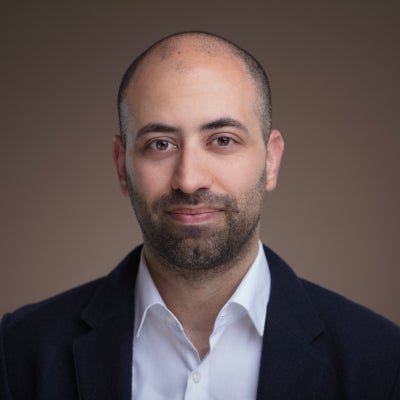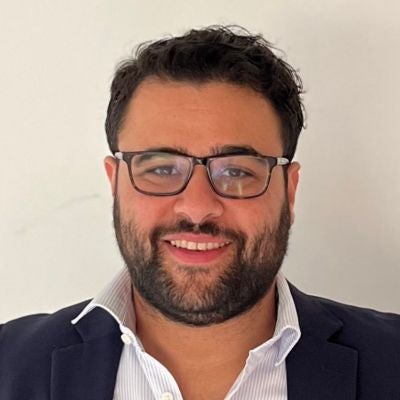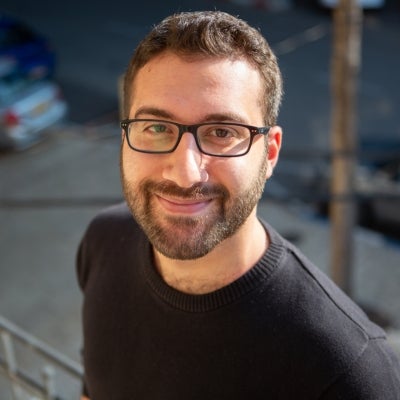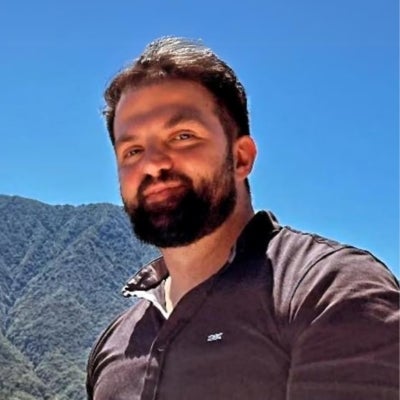Palestinian Consensus: Easier Said Than Done?
This session will investigate attempts at fostering a shared vision among various Palestinian constituencies, including those in the diaspora and across different geographies, ideological bents, and political generations. The panel will discuss how national consensus may be built and how various initiatives to support a cohesive, collaborative, and strategic Palestinian political movement may be consolidated.

Abdullah Al-Arian (Moderator)
Abdullah Al-Arian is Associate Professor of History and Chair of International History at Georgetown University in Qatar, where he specializes in the modern Middle East and the study of Islamic social movements. He teaches introductory courses on the history of the Middle East, as well as advanced courses covering the history of modern Egypt, Islamic social movements, the Arab uprisings, and the history of US policy towards the Middle East.
He is the author of Answering the Call: Popular Islamic Activism in Sadat’s Egypt (Oxford University Press, 2014), and the editor of Football in the Middle East: State, Society, and the Beautiful Game (Oxford University Press, 2022). He is the editor of the Critical Currents in Islam page on the Jadaliyya e-zine, where he is also a regular contributor. His writings have appeared in the New York Times, Foreign Policy magazine, Middle East Eye, Middle East Research and Information Project, Muftah, and Al Jazeera. He has also been featured in media interviews by Al-Shabaka: The Palestinian Policy Network and Democracy Now! Previously, he was the Carnegie Centennial Visiting Fellow at the Josef Korbel School of International Studies at the University of Denver.

Zayne Abudaka
Zayne is a co-Founder and Senior Fellow at the Institute for Social and Economic Progress (ISEP), a Palestine-based independent research institute with a mission to advance social science research in Palestine and the Arab region through experimental research.He is a co-founder and Editor-In-Chief of the progressive Arabic-language media channel, Masa7a. He is also the Treasurer and Member of the Board of Directors at the Palestine Institute for Public Diplomacy, an independent non-profit that aims to shift discourse and policy related to Palestine through people’s engagement and advocacy.
In addition to his roles in the nonprofit field, Zayne is also co-Founder of and Senior Partner at the Ramallah-based start-up studio and boutique consultancy, Momentum Labs, and a co-Founder and Chief Product Officer at the market research platform/ tech firm, MENA Analytics.
Zayne holds a Master of Arts in Economics from the University of Edinburgh in the United Kingdom.

Amjad Iraqi
Amjad Iraqi is a senior editor at +972 Magazine. He is also an associate fellow with Chatham House’s MENA Programme, and a policy member of Al-Shabaka. He was previously an advocacy coordinator at the legal center Adalah. In addition to +972, he has written for the London Review of Books, The Nation, The New York Review of Books, and The Guardian, among others.

Fadi Quran
Fadi Quran is the Senior Director at Avaaz, a global civic movement with 69 million members dedicated to driving change worldwide. In his current role, Fadi focuses on cultivating transformative leadership throughout the Southwest Asia and North Africa (SWANA) region, advocating for human rights across the globe, and organizing efforts toward Palestinian liberation. He has led numerous organizing and civil disobedience efforts in the occupied territories, which garnered international attention to the regime of Apartheid governing Palestinians, and resulted in multiple arrests and detentions.
Previously, Mr. Quran served as the UN Advocacy Officer with Al-Haq’s legal research and advocacy unit in Palestine, where he specialized in international law and human rights advocacy.
Beyond his advocacy work, Mr. Quran is an entrepreneur in the alternative energy sector, contributing to innovative solutions for sustainable energy. His insights and expertise have been featured in prominent media outlets, including The New York Times, NPR, The Guardian, AFP, TIME Magazine, Al Jazeera, and others. He holds degrees in Physics and International Relations from Stanford University. Follow him on Twitter @fadiquran for updates and insights.